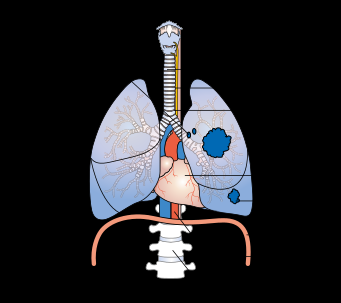
Late-stage lung cancer patients often develop a condition known as cachexia, which is characterized by the wasting of the body because of the decreased muscle mass and the potential development of anorexia, compelling the patients to eat less and thus receive fewer nutrients. A new drug, however, shows significant promise in slowing the condition by simulating the work of a receptor responsible for the production of the growth hormone.
A 2-phase random clinical trial funded by Helsinn Therapeutics revealed that Anamorelin, a kind of ghrelin agonist, may help increase the lean body mass of patients with advanced cancer, especially lung cancer. Ghrelin is a receptor that promotes growth hormone release.
Over 480 patients participated in the ROMANA 1 trial while another 495 became part of ROMANA 2. These patients were chosen based on their body weight over the last 6 months before the trials or their body mass index. The study ran for 12 weeks and involved various investigators in certain countries like Australia.
Patients were allowed to proceed with their chemotherapy treatments including those for maintenance except for systemic. Some of them then randomly received a placebo or 100 mg anamorelin over a period of 12 weeks.
At the end of the study, they discovered that around 14% of the ROMANA 1 participants experienced a weight gain of 5 pounds (average) than half a pound of those who were given placebo. Patients who formed part of the second phase gained more weight or lean ass while those in the placebo group lost over 1 pound.
Patients who received the drug during the course of the study also experienced a better quality of life since their anorexia and cachexia symptoms significantly decreased.
While the drug may be used to increase a patient's appetite and lean mass or weight, it may not be as effective in improving strength. Patients who had taken the drugs did not show any improvement in their hand grip strength. Instead, they experienced a slight decline.



